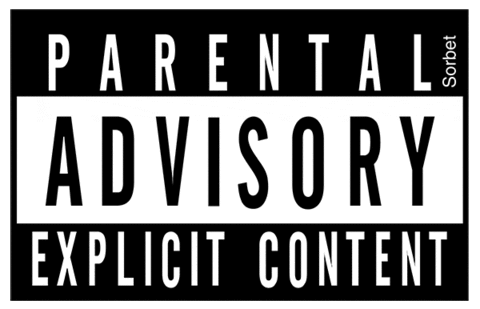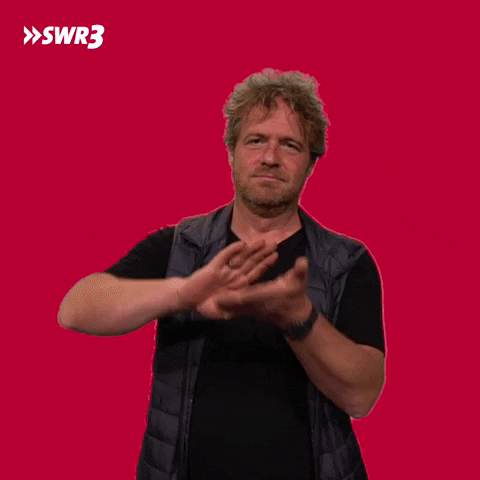A Simple Guide To Protect Yourself Online From Big Tech & Governments
Are you worried about Big Tech & Governments using your data? Are you afraid of being tracked and censored online? If so, I got you; if not, I still got you. In this day and age, it has become increasingly important to protect yourself on the Internet. Online censorship created by Big Tech & Governments can threaten our digital privacy and security. With the right tools, however, we can hold onto our freedom while preventing these companies from taking advantage of us - enter VPNs (Virtual Private Networks). In this blog post, I will discuss why having a VPN is more important than ever in today's world, where online privacy is constantly at risk. Let's understand how to stay secure in an ever-changing digital environment, where no doubt a sure William Henry Gates & Mr Schwab & co will look to hold humanity hostage at the helm (again). Anyway, are ya ready?
(a) Defining the problem - why you need to protect yourself online & not be a silly sausage
Let's face it. Online protection is paramount. Since 2020, protecting yourself online has meant more than just having a strong password. As I write this, in 2023, AI is emerging rapidly, and it looks like we will need to keep a keen eye on it. The online world can be full of cabal/deep state-type people who want to take advantage of your personal data (and freedom). One of the first steps in protecting yourself online is defining the problem. Recognising potential risks and then developing a way to stop them is crucial. Having a plan in place can help keep you from becoming a victim of these enslaving techniques dished out by the Zuckerbergs of our planet - a side question: you know that he didn't actually create Facebook, right?(!) Something we'll discuss at another time, but by protecting yourself, you can have peace of mind knowing that your online presence is safe and secure.
(b) Understanding the scope of censorship and surveillance practices by Big Tech & Governments
In today's digital era, there is an increasing concern about the scope of censorship and surveillance practices exercised by big tech companies and governments worldwide. As we all know, social media platforms like Facebook, Twitter, and YouTube have been under scrutiny for their strict enforcement of content policies that limit the freedom of expression, leading to many controversies over the years. Moreover, governments in many countries have been criticised for monitoring and interception tactics, often violating individuals' privacy rights. Understanding the extent of these practices is crucial to ensure that our fundamental rights are protected and that we are not subject to undue censorship or surveillance.
(c) There are risks of staying unprotected online & doing something about it should be a priority
As technology continues to advance, more and more people are connecting online. While the internet offers many benefits, it also has its share of risks. Staying unprotected online can leave you vulnerable to cyber attacks, identity theft, and other forms of cybercrime. Hackers are constantly finding new ways to exploit weaknesses in your online security, and without proper protection, you could become their next victim. Awareness of the risks and taking steps to protect yourself is crucial in today's digital age. Don't put yourself at risk by staying unprotected online; don't be a potato. It's time to get a VPN in place.
(d) Exploring types of VPNs and telling your noggin the benefits of using one
The internet has drastically changed the way we interact with the world. With the rise of global tyranny and online communication, ensuring that our online activity is secure and private is more important than ever. One way to achieve this is by using a VPN (Virtual Private Network). A VPN creates a secure, encrypted connection between your device and the internet, masking your IP address and location. This ensures your online activity remains private, even when using public Wi-Fi networks so that snooping Govt or Big Tech eyes cannot see what you are doing in your leisurely time. It’s important to remember that you are a free and sovereign being - basically, you can do da fuq you want, without having authorities look over your shoulder. You are free.
Different types of VPNs are available, each with its own set of benefits. From increased privacy to enhanced security, the advantages of using a VPN are numerous, making it an excellent investment for anyone who wants to remain anonymous online. It’s something I have been doing by default for years, and I can honestly say that it has made a difference.
(e) How is a VPN different from other privacy protection services?
While several privacy protection services are available, a VPN stands out. Unlike traditional privacy tools that only prevent third-party sites from capturing your data, a VPN creates an encrypted tunnel through which all your internet traffic flows. As a result, no one can monitor your activities, not even your internet service provider (ISP). Furthermore, unlike other services that might only protect your browsing activities, a VPN keeps you secure whether you are streaming movies or downloading files. With a VPN, you can enjoy complete privacy and security, making it the best choice for protecting your online identity against the forces of Big Tech & corrupt regimes restricting freedom.
(f) Setting up your VPN for maximum security and privacy protection
With so many VPN options, how do you ensure you get the maximum protection possible? Let's keep it simple & break it into three things to look out for:
(i) No-log Policy - First, make sure the VPN provider you choose has a no-logging policy, meaning they don't retain any of your data.
(ii) Strong Encryption - Look for a provider with strong encryption, such as AES-256.
(iii) Multiple Servers - Choosing a VPN with a wide range of server locations is also important to ensure you can control & connect securely from anywhere.
With these steps in mind, you can feel confident that your online activity is protected and private. To preempt being inundated with the question of which provider I use: ProtonVPN. I currently use Proton's suite of privacy products. You can find more information in the FAQ section at the bottom.
Can using a VPN be annoying? Yes.
I am writing this bit because even though a VPN is well worth it, there are frustrations with having one - I would be lying if I said there weren't any. Now, keep in mind that this does not happen often. But for me, the particular frustrations are connection speed and stability. The annoyance of watching downloads trickle through at a snail's pace, and the constant buffering symbol when streaming your favourite content is enough to test even the most patient user. The pains of an unstable connection worsen the agony, leading to abrupt disconnections and lost productivity when you least expect it. No wonder some people readily accept the alternative: an internet without freedom.
However, beyond these frustrations lie many benefits that make persisting with a VPN worth it in the long run. Enhanced privacy and top-notch security are crucial in an ever-evolving digital landscape filled with hackers, snoopers, and the piercing eyes of Governments; a VPN allows you to maintain control and keep your data safe. Overcoming censorship and accessing geo-restricted content grants you digital freedom, enabling you to stay informed and entertained no matter where you are.
I'm not trying to sell you anything here, but the paid subscriptions help mitigate these issues. It makes sense, as SaaS businesses make money by providing better-performing services for additional monies. I've tried both, and the paid plans offer a higher quality of services and more reliable connections.
Adapting to your VPN is key
Ultimately, despite the occasional hiccups, incorporating a VPN into your daily online life is vital in retaining control over your digital presence and ensuring your security in a world where surveillance and data breaches have become increasingly common. The trick is to adapt alongside your VPN, learning how to make the most of it and become so comfortable using it that it fades into the background, like a silent guardian watching your online interactions and fending off the Deep Staters of the world.
Are VPNs expensive?
While some VPN services can be pretty expensive, there are also many affordable options available for users to choose from. The average monthly subscription cost for a VPN service is around $15-20, which is a small price for the online security and privacy it provides. Additionally, many VPN providers offer discounts and special deals for long-term subscriptions, making them even more cost-effective for users.
Overall Msg: Protect your Anonymity & Privacy From Those Seeking To Enslave - Get Protected With A VPN.
In conclusion, staying safe online is becoming more and more necessary in a world where big tech companies and governments actively censor and collect data on their users. Fortunately, there are things that you can do to protect your online privacy such as using a VPN. Not only does a VPN encrypt your internet activity, but it can also improve Internet speeds and access to geo restricted content. With the various types of VPN solutions out there, you can find one that fits your specific needs for the best protection for yourself and your personal data. Spending some effort to research how each option works so that you are sure the infrastructure and legal jurisdiction is soundly protected should be considered before picking the right VPN service provider. It's important to take proactive measures to stay safe online now and ensure privacy into the future!
FAQs
-
Although incognito mode can prevent your browsing history from being stored on your device, it does not provide the same level of privacy and security as a VPN. In incognito mode, your internet service provider (ISP) can still monitor and track your activity, while a VPN encrypts your internet connection, preventing anyone, including your ISP, from seeing your online activity. Additionally, incognito mode does not protect you from hackers or other third parties trying to intercept your data, while a VPN creates a secure tunnel for all of your internet traffic. Therefore, using a VPN is a much more effective solution for protecting your online privacy and security.
-
When it comes to choosing a VPN, there are several factors to consider. Look for a VPN that offers strong encryption protocols, such as AES-256, which is considered military-grade encryption. It's also important to choose a VPN with a no-logging policy to ensure that your personal information is not collected or stored. In addition, choose a VPN with servers located in multiple countries, so you can access geo-restricted content from anywhere in the world. As mentioned in the article, I personally like & use ProtonVPN. Some other top VPN providers include ExpressVPN, NordVPN, and CyberGhost, which offer top-notch security features, fast connection speeds, and user-friendly interfaces. Ultimately, the best VPN for you will depend on your specific needs and budget, but by doing your research and choosing a reputable provider, you can ensure that your online activity is secure and private.
-
While there are free VPN services available, they are generally not recommended due to several drawbacks. Firstly, free VPNs often have limited server locations, meaning that you may not be able to access content from certain regions. Additionally, free services tend to have slower speeds and less reliable connections than paid options. Finally, many free VPNs make their money by selling user data to third-party advertisers, which defeats the purpose of using a VPN for privacy protection. Paid VPNs, on the other hand, offer a higher level of security with advanced encryption protocols, stricter privacy policies, and faster speeds. It's worth investing in a paid VPN to ensure that your online activity remains safe and private.
-
It is highly recommended to use a VPN on all your devices, especially in today's digital age where hacking and data theft are prevalent. Using a VPN not only protects your sensitive information but also ensures your online freedom and privacy by encrypting your internet connection. A VPN can be used on multiple devices, including smartphones, tablets, laptops, and desktop computers, which makes it a versatile and convenient tool for safeguarding your online activities. Moreover, it can protect your online shopping, banking, and streaming activities from being tracked by third parties, including big tech giants, thus providing you with peace of mind and online security.
-
If your VPN is not on all the time, you are essentially leaving yourself vulnerable to online threats and security breaches. Without a VPN, your ISP can see and monitor your online activity, exposing your sensitive information to potential hackers and data thieves. Even if you are only browsing the web or checking your email, you never know when a malicious entity could be watching and waiting to pounce.
Moreover, accessing public Wi-Fi networks without a VPN is particularly risky, as these networks are notoriously insecure and could be easily compromised by cybercriminals. By using a VPN, however, you can encrypt your internet traffic, making it nearly impossible for anyone to intercept or compromise your data. This adds an extra layer of security.







